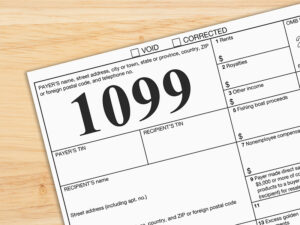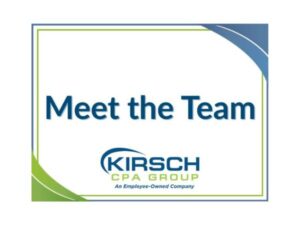Year-End Tax Planning For Manufacturers
Kirsch CPA Group
Nov 07, 2023

Implementing year-end tax planning strategies now can help reduce your manufacturing company’s 2023 tax bill. Indeed, a lower tax bill can improve your cash flow and your bottom line. One of the most tried-and-true strategies is acquiring and placing in service equipment and other qualifying assets so that you can claim the Section 179 expensing election and first-year bonus depreciation.
Sec. 179 Expensing Election
Under Sec. 179 of the Internal Revenue Code, you can “expense” the full cost of a qualifying fixed asset, such as manufacturing equipment, to reduce your taxable income. This means you can deduct the purchase amount immediately rather than having to depreciate the asset over many years.
Both new and used fixed assets can qualify. Best of all, the election is available for qualified property placed in service anytime during the year, up to year end. In other words, if you acquire equipment for your company in late December and start using it by December 31, you can elect the maximum deduction on the 2023 tax return you’ll be filing in a matter of months or even weeks.
The maximum overall deduction allowed in 2023 is $1.16 million, with a total asset purchase limit of $2.89 million, after which your deduction for the year is reduced dollar-for-dollar until it’s completely eliminated. Also, you can carry forward unused deductions to future tax years. However, if you sell the property before you use up all the carryforward deductions, you must add them back to the asset’s basis. This can create adverse tax consequences if not thought out carefully.
Assets that are built-in equipment in buildings can also be expensed under Sec. 179; this is called tangible personal property. Qualified improvement property (QIP) can be expensed this way, too. These are improvements to a commercial space that aren’t related to a building’s enlargement, an elevator or escalator, or internal structural framework. Roofs, HVAC equipment, fire protection systems and security installations can all be Sec. 179 expensed.
First-Year Bonus Depreciation
If your asset acquisitions for the year exceed the Sec. 179 expensing limit, consider bonus depreciation. Purchased assets with a depreciable life of 20 years or less generally qualify and can be 80% expensed using bonus depreciation as long as you don’t expense the same costs under Sec. 179. Before the Tax Cuts and Jobs Act (TCJA), bonus depreciation could be applied only to new assets, but most used property now qualifies as well.
If you’d prefer to keep an asset’s basis on your balance sheet, you must opt out of bonus depreciation. This election cannot be revoked without IRS permission.
Under the TCJA, bonus depreciation doubled from 50% to 100% of the cost of qualified property placed in service after September 27, 2017, and before January 1, 2023. Beginning in 2023, however, bonus depreciation is subject to a gradual phaseout, as follows:
- 80% in 2023,
- 60% in 2024,
- 40% in 2025, and
- 20% in 2026.
After 2026, zero bonus depreciation will be allowed, unless Congress revisits the issue before then.
Note that the Sec. 179 election can complement first-year bonus depreciation for the same property if the cost is large enough. Sec. 179 is applied first and then bonus depreciation is based on the remaining cost.
Act Soon
For many manufacturers, before year end is the time to act to reduce their 2023 tax bills. And acquiring assets and placing them in service this year may be especially beneficial since first-year bonus depreciation is declining to 60% in 2024. Contact Kirsch CPA Group for help implementing these and other year-end tax planning strategies.
Schedule an appointment to learn how we can support you
© Copyright 2023. All rights reserved.
More Resources

About The Author
Kirsch CPA Group is a full service CPA and business advisory firm helping businesses and organizations with accounting,…
Sign Up for Email Updates
Tags
Accounting & Financial News

1099 Rules Changes for Businesses
The One Big Beautiful Bill Act (OBBBA) eased the rules in 2026 for Form 1099-NEC, "Nonemployee Compensation,"…




